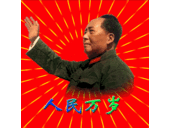|
Some betoota parody magic
|
|
|
|

|
| # ? Jun 7, 2024 09:07 |
|
Is that the dude where the chinese liars had a tantrum because the Australian swimmer called out their cheating olympic athlete and then the cheater got some massive ban from the olympics and the australian guy was vindicated?
|
|
|
|
I wonder if these conversations ever take place the other way. I've run into plenty of immigrants to the US who either don't speak English at all or never get past super basics, including parents of friends. It doesn't bother me any, though there are a lot of those SPEAK ENGLISH OR GO HOME idiots.
|
|
|
|
Kharnifex posted:Some betoota parody magic I don't know if he's a horrible chud or not, but (if not) my hat's off to him.
|
|
|
|
strange feelings re Daisy posted:I don't think it's an overstatement at all. For a vacation it would make sense to just muddle through, sure. Someone with easy access to education living in China for years is a completely different story. I met many expats who only hung out with other English speaking expats and relied on bi-lingual helpers for everything. I think it was rude but moreover it was completely pathetic. They experienced virtually nothing of China, couldn't even really take care of themselves without help, and just hid in their little bubbles. It was also my experience that these types usually had a condescending, imperious attitude towards the locals. Many people in China already speak 3 or 4 dialects and Mandarin is the lingua franca there. Not sure what the point you're trying to make with the dialects is but sure. Grand Fromage posted:I wonder if these conversations ever take place the other way. I've run into plenty of immigrants to the US who either don't speak English at all or never get past super basics, including parents of friends. It doesn't bother me any, though there are a lot of those SPEAK ENGLISH OR GO HOME idiots. I've been in such a situation many years ago in a Manhattan shop when a friend and I spoke our language to each other. "Be polite! Speak English" the owner of the store, which sold post cards, suitcases and assorted tech items said. We left. I think some people can't deal with that and think anyone who speaks a different language is talking about them or something.
|
|
|
|
Bold the whole thing, etcquote:Mack poked the dragon and parents paid price
|
|
|
|
Arven posted:So I've been reading through the Three Body Problem trilogy, and I just had to ask this thread... is it me, or is Chinese thinking practically alien? I've lurked this thread off and on through its many iterations and I think I understand no why and face culture and all that, but goddamn something struck a cord in me with these books. It's possible it's just the author, but I feel like it isn't because what I've read previously here? I'd love to know some examples of this from the book. I've also experienced this a little with media and just ESL-student interactions. Like sure there's going to be some cultural differences around the world, but it doesn't matter if someone's from Chile or Nigeria or Vietnam there was always enough of a sort of universal shared human experience and thought-process that could eventually form friendships and a common ground everyone could relate to, everyone could eventually get on the same page to tackle group projects and creative writing and interpreting poetry and movies and so on. But the mainland chinese students, specially the boys, there was always way more trouble. And we'd rarely get through to them, they'd usually just go into a sulk mode and put in minimal effort and hide in their dorm rooms. The Saudi, Nigerian, and HK kid would all understand the underlying message of a film but the mainland chinese guy would have some absolutely bizarre take on it, totally missing the obvious themes of the movie and then getting very upset that everyone else thought differently and then further withdraw from the other students. It was always very difficult and we never quite figured out the right strategy.
|
|
|
|
I get that it can be hard, I think there are situations where not learning the language makes sense, like people just doing a year in another country or even people who live somewhere that speaks a language you can't just naturally pick up, and are way out in the middle of nowhere. I'm the kind of person that really struggles to learn a language on my own but I pick it up really well if I'm in an actual class. So, I've been lucky to have that, live in a big city, or with Chinese I took uni classes before coming here which gave me a pretty good base to work with. Not everyone has the chance or the money for that. Or if you just sit at home/hang out with expats all the time because that's what you like, whatever. Who are any of us to tell people what to do with their lives. As long as they aren't speaking poo poo or bugging other people who cares. Though, last job I worked with this guy, he had something weird going on in his head I'm sure. But he would just speak English, all the time, to everyone. Go to some small store run by a 60 year old guy and he full blast starts shouting English at them until he gets what he wants. He was the 'Chinese people are loving animals' type, so gently caress him. You're dumb as poo poo if you don't pick up hangul in Korea though. Figured that poo poo out on my own just riding the train and looking at multi-lingual signs. I'm more kinda blown away by these 'I had no Korean/Chinese friends' posts. You guys do you but that seems boring as gently caress.
|
|
|
|
I knew like 10 words of chinese when i went to china, but I had done a couple years of Japanese in college and had a deep abiding love for the calligraphy, much more so than for anything specifically Japanese, so while I could eventually get by in Chinese I was always more literate than fluent. Tons of poo poo I knew/know the character for but couldn't remember how to say.
|
|
|
|
in any other place on earth I'd argue knowing the language will be better but (mainland) China is an exception, the more people understand the quicker they burn out
|
|
|
|
Magna Kaser posted:Cuz most non Chinese speakers can’t pronounce a lot of Chinese sounds, never mind tones. There’s also a ton of discrimination outside of China itself and if you cv says “Rachel” you’ll get a lot more follow ups than if you name is Shan Shan. It's quite annoying that most English transliterations of Chinese don't use pinyin tone marks, given how fundamental it is to the language and how honestly quite quite simple the Mandarin tone system is. The marks look like the tone curve they represent and there's all of four of them, it's not that hard. Can I pronounce or hear them reliably and quickly? No, but having the tone marks is a hell of a lot more information about the sound than completely omitting them. It's not like it's impossible to understand the underlying vowel sound when tone marks are present even if you don't know what they mean. We don't strip all the diacritics from Spanish or French or Vietnamese; I see no reason why we strip them from pinyin. Mandarin consonants are, however, a crapshoot, and pinyin is often quite misleading there if you understand it as "sounds like the English equivalent consonant" rather than "a somewhat arbitrary Latin character choice to represent a consonant that doesn't exist in English, but soooooorta sounds like that letter does in English". It's probably about as good as we're going to get though, and is no more off the mark than, say, English speakers trying to pronounce Dutch names.
|
|
|
|
hakimashou posted:I knew like 10 words of chinese when i went to china, but I had done a couple years of Japanese in college and had a deep abiding love for the calligraphy, much more so than for anything specifically Japanese, so while I could eventually get by in Chinese I was always more literate than fluent. Tons of poo poo I knew/know the character for but couldn't remember how to say. China is one of those countries where not knowing the local language can really leave you completely lost. You can get around with english in Shanghai or Beijing, but even there it can get dicey outside the tourist areas. The other big country like that is Russia and its cyrillic sphere of influence.
|
|
|
|
CMYK BLYAT! posted:It's quite annoying that most English transliterations of Chinese don't use pinyin tone marks, given how fundamental it is to the language and how honestly quite quite simple the Mandarin tone system is. The marks look like the tone curve they represent and there's all of four of them, it's not that hard. Can I pronounce or hear them reliably and quickly? No, but having the tone marks is a hell of a lot more information about the sound than completely omitting them. It's not like it's impossible to understand the underlying vowel sound when tone marks are present even if you don't know what they mean. We don't strip all the diacritics from Spanish or French or Vietnamese; I see no reason why we strip them from pinyin. You're misinterpreting what pinyin is. It's a pronunciation tool for Mandarin and was never intended to be 1:1 with English phonology. This has been explicitly stated by one of the lead architects (and vocal CCP critic for most of the 100+ years of his life) of Pinyin. They set out to make a pronunciation tool and not a way to transliterate it, which it was retrofitted into being sometime later. When developing Hanyu Pinyin, they considered making a new set of glyphs, using Cyrillic and resurrecting old sets (like the one that would become Bopomofo), etc.. and landed on Latin characters. It's only misleading because you're assuming it should be using English phonology and not looking at it as its own set of sounds. I hear this complaint a lot from English speakers but I've never heard anyone complain that German or French or Italian have different pronunciations for the same letters. For this purpose, it's great, and big step up from what they used to use which was some wild system of assigning arbitrary sounds and tones to certain characters. The lack of tone markers is annoying, but common because for most purposes of transliteration Chinese people know what the word is and don't need them and it's annoying to add. Any time they Hu Jintao or Xi'an or Guangzhou, they know the tones they are supposed to be and it's extra work for everyone to add then for no real benefit as hardly who needs pinyin would know what those mean. It's not the same as accent marks in other languages because very few actual speakers of the language use Pinyin to communicate longform or officially. Almost every kids' book with ruby script would have them because the intent of that is to teach how to read characters. This is a totally different use-case compared to just using "Deng Xiaoping" as a standardized way to write 邓小平。 Bopomofo while sometimes is missing tone marks usually has them cuz it's exclusive use is similar to my above example. It's just as useless as full-on characters to 99.9% of people. The cool thing about Taiwan is they still use 32 different romanization systems so you really have no idea how to pronounce anything unless you know the Chinese or what exact system you're looking at. tl;dr, pinyin wasn't made to replace characters and used on it's own, and wasn't specifically made for speakers of any language other than Chinese itself. It's a very good system for what it is and the lack of tone marks when localizing place or people's names is understandable laziness as most people who don't know the tones already wouldn't know what they mean anyway.
|
|
|
|
Pinyin is good because it's consistent. You don't get the problem of just random rear end spelling in China that you do in Korea, despite the fact Korea has a standardized system for spelling in Roman script everyone just loving ignores it and mashes their keyboards like idiots. I do agree about using the tone markers though, I would have had an easier time. Fortunately it turned out that at least in Sichuan, you can just straight up ignore tones and everyone still understood what I was saying. Idk if that's true everywhere but Sichuanese tones are so weird anyway it works.
|
|
|
|
Grand Fromage posted:I wonder if these conversations ever take place the other way. I've run into plenty of immigrants to the US who either don't speak English at all or never get past super basics, including parents of friends. It doesn't bother me any, though there are a lot of those SPEAK ENGLISH OR GO HOME idiots. BrainDance posted:Or if you just sit at home/hang out with expats all the time because that's what you like, whatever. Who are any of us to tell people what to do with their lives. As long as they aren't speaking poo poo or bugging other people who cares.
|
|
|
|
strange feelings re Daisy posted:Those conversations definitely do take place the other way sometimes. The Chinese-American immigrants I know consider it extremely foolish to live in America and not learn English. It's basically seen as career suicide and condemning yourself to menial labor. That's just the majority of people I know, including my own family, obviously not everyone feels the same and it's not 100% true. Interesting. Can you post any stories or conversations you've had about the Chinese expat experience? Obviously most of what we read is English speakers moving elsewhere, I'm always curious about what sorts of expat bitching there is for people moving to Anglophone countries.
|
|
|
|
strange feelings re Daisy posted:
This is/was one of my biggest gripes with "those" kind of expats. Why take a job half way around the world if you don't want to at least engage with the culture/people? And a lot of the time they actually have to try to avoid stuff. i.e. the guy I knew who spent 5 years teaching elementary kids in Korea yet didn't know who/what Pororo was. I suppose the Chinese equivalent would have been not knowing about the Monkey King. People like him, (and in my time as an expat I have met plenty of them), seem to spend their time drinking at the same bar with the same people whinging about the same things. On this phenomenon. It always baffled me the people who had spent multiple years 'in country' but hated it. One of the benefits of being an ESL Teacher is the ability to gently caress off home after your contract is finished. If you hate it here so much, why did you re-sign for another year?
|
|
|
|
BrigadierSensible posted:On this phenomenon. It always baffled me the people who had spent multiple years 'in country' but hated it. One of the benefits of being an ESL Teacher is the ability to gently caress off home after your contract is finished. If you hate it here so much, why did you re-sign for another year? You're presuming options on the other person's part that they may not have. I stayed in China longer than I wanted to because my job was secure and paid enough to live, and I had nowhere else to go. I was looking for something new, but finding a job that pays enough to live on in the country you're in + enough extra to pay massive debt back in the US is not easy. And going "home" meant no friends, no job, no healthcare, and nowhere to live, so it was not an option until it was forced on me by family poo poo. E: Also, leaving would've meant going to some ESL mill instead of the good job I had. Living in China sucked but my job was largely decent and had a potential future, unlike doing the grind at a hagwon or some bullshit. Basically I'm saying there are a lot of things in other people's lives you may not be aware of. There's also the fact that everywhere sucks in its own way, and the specific combination of suck in one place may be better than others, so you live with it but that doesn't mean you have to pretend it's all roses and sunshine. There are also people who just suck, but honestly I didn't encounter all that many in either Korea or China. Korea had a few spectacular burnouts though, that was always fun. Grand Fromage fucked around with this message at 06:29 on Apr 30, 2020 |
|
|
|
Grand Fromage posted:Interesting. Can you post any stories or conversations you've had about the Chinese expat experience? Obviously most of what we read is English speakers moving elsewhere, I'm always curious about what sorts of expat bitching there is for people moving to Anglophone countries. Wasn't that /r/sino? Or are we talking legitimate bitching?
|
|
|
|
Maybe it kind of depends on how far we're stretching the definition of expat here. A friend of mine hasn't really put much effort into learning Chinese, she doesn't care. She doesn't even like it all that much (she's black and has a very different experience than most of us. I went to Luoyang with her to see those big rear end Buddhas, the Buddhas were great but the way everyone acted around her, way different than how I'm treated and super lovely, gawking like they're at the zoo). She's from a pretty poor country, her husband is from Zimbabwe and you can imagine how that goes. She's here to send her kids to college, and she puts up with a ridiculous amount of poo poo to do that. If I was her, gently caress learning Chinese. But SA is mostly white, mostly from western developed countries, so yeah we're probably talking about a very specific kind of expat, but really there are a lot of not Chinese English speakers who come here for all kinds of reasons other than getting pictures eating bugs for their blog.
|
|
|
|
BrainDance posted:Maybe it kind of depends on how far we're stretching the definition of expat here. There doesn't seem to be a consistent one. For me, expat = living in another country but not intending it to be permanent. Immigrant is when you are intending to stay in the new country permanently. I hope to eventually graduate from expat to immigrant somewhere.
|
|
|
|
BrainDance posted:Maybe it kind of depends on how far we're stretching the definition of expat here. Yeah. I guess I am hugely guilty of using expat to describe only the wastrel ESL teachers I have met, most of which were white priviledged Americans/Canadians. (It always surprises me how few other Aussies or Kiwis I have met). And yeah, sometimes grinding away at a ashitty job in a lovely country you hate is better than what is 'at home'. Also, I am not talking about all the cool, fun, interested people who engaged with local culture etc. Coz there are plenty of those as well. I was just whinging, and making generalizations based on a few arseholes I have met. Sorry.
|
|
|
|
Well you're not wrong either, it's not like those lovely people don't exist. I'm not trying to say you're wrong, just that, like everything it's a complicated thing. I think, anyway.
|
|
|
|
Is cool, just offering the other perspective. I had my issues with Korea but I never hated it. China was fine for two years and then by the end of my third I loathed being there, but I was stuck so I had to deal. If things had gone differently I might still be stuck there. Which at this point doesn't sound so bad, my time back in the US is even worse than China.
|
|
|
|
Korea is the Australia of Asia.
|
|
|
|
Pinyin is actually really good. There are a handful of consonants and diphthongs you have to just learn but... you learn them by speaking chinese and listening to people speak it. Its very regular and intuitive like someone said above with the diacritics giving you a pretty accurate visual sense of the tones they mark. "x" is the sound in "xie xie" and "c" is the sound in "baicai" or cao ni ma, "q" is the sound in "qing" etc, "s" is from "yi er san si" and of course, the y is silent, and there you go. "ua" from "yuan" and iu from "jiu." cant think of the rest off the top of my head but bang, now you know pinyin. What's the alternative? That wade-giles substitution cipher poo poo? hakimashou fucked around with this message at 07:18 on Apr 30, 2020 |
|
|
|
I would blow Dane Cook posted:Bold the whole thing, etc Honestly, ignoring them and not actively trying to find them just emboldens people. I mean, at least not actively looking for them is implied in the article.
|
|
|
|
Kharnifex posted:Korea is the Australia of Asia. It's not that bad, surely Blistex posted:I don't know if he's a horrible chud or not, but (if not) my hat's off to him. He's a chud and The Betoota Advocate is a parody outlet, in the same vein as The Onion
|
|
|
|
Pompous Rhombus posted:As someone who loves languages and currently teaches one (not English!), I actually pretty much agree with this take. Yeah, like I said, I'm mostly invested in it because of my partner, but also I do just genuinely enjoy languages. The "worst" "investment" is definitely Ainu, but I want to learn that too one day. BrainDance posted:we're probably talking about a very specific kind of expat That's the argument being made. If you're just visiting, just learn hello and thank you if you want. If you're moving there, learn something! You've moved to a new country for a reason, what was the reason? Get out, travel, learn some stuff. Do stuff! If you've been living there for 10 years, and will continue living there for the foreseeable future - you've definitely got the time and reason to learn the language. On the other hand, you've already made it this far, so I guess you've got everything worked out. At the end of the day, you should do you. But you're just making your life harder than it needs to be and you're putting yourself in a situation where you need to rely on other people a lot. You're also just setting yourself up for situations where no one is going to be able to communicate and it's going to be frustrating for everyone. It's silly to be mad at those people, but like, you're mostly just hurting yourself a lot by not doing it. It's good we live in a time of Google Translate. Edit: The real issue though is that you have all these passionless people teaching English. People with no love for English or language or teaching or real anything. Like if your math teacher doesn't like math, how are you supposed to get excited about it yourself? Grand Fromage posted:I loathed being there I think learning the language helps a lot. You'll be able to do more things and interact with more people. You'll run into fewer obstacles and have greater independence. Arven posted:So I've been reading through the Three Body Problem trilogy, and I just had to ask this thread... is it me, or is Chinese thinking practically alien? This happened to me when watching Rashomon, with the scene with the bandit and the woman. It's kind of amazing (or in that case: unfortunate) the way people's thinking can work so differently than your own. Related: I often wonder what farmer Koreans think having dogs tied up on short, short leashes to tiny, tiny dog houses all day. I saw someone taking one for a walk; I hope they all get some play time, but it's all so sad. BrainDance posted:I'm more kinda blown away by these 'I had no Korean/Chinese friends' posts. You guys do you but that seems boring as gently caress. Strong e/n territory here, but: Edit: Eh, I don't really want to post all that. Suffice to say, I tried. And I've got some old friends and some elderly friends, just not too many new my-age friends. It's easier to make friends in a big city, which is not where I live. Shadow0 fucked around with this message at 07:46 on Apr 30, 2020 |
|
|
|
Grand Fromage posted:Interesting. Can you post any stories or conversations you've had about the Chinese expat experience? Obviously most of what we read is English speakers moving elsewhere, I'm always curious about what sorts of expat bitching there is for people moving to Anglophone countries. Those that raise kids here or even just send them to college here don't understand that young people here are much more independent and want to do their own thing. When their kids move away permanently altogether instead of coming home sometimes they freak out and guilt trip them very badly for years. Also related to parenting, there is a lot of truth to the stereotype about pressuring kids to succeed and be prestigious on the parent's terms. Chinese parents can be really specific about what they consider an acceptable area of study or career for their children and don't understand why colleges have so many "pointless" degrees. They would get along well with American conservatives that complain about degrees in "underwater basket weaving". This new wave of professionals and student expats/immigrants are different from the impoverished people and refugees of earlier waves. They are often extremely nationalistic about China. Sometimes they have their own reservations about life there but when foreigners criticize China over just about any news item you can imagine they get insanely defensive. Don't antagonize them because they will just double down. Freak them out with reverse psychology. Tell them how perfect Chinese healthcare is and how there's no corruption or poverty and you want to move there to study Xi Jinping Thought and China's 10,000 years of history. Some of the expats I know who came here for business opportunities and possible permanent residency have seen how America handled the COVID crisis and are now like "Holy poo poo this country is more dysfunctional than I thought. Maybe I should just go back now?" Some of them won't have a choice anyway because they are underwater and they aren't getting SBA loans. Many of the expats don't care for American cuisine all that much and prefer to keep eating Chinese food. I thought this was interesting since KFC is a big hit in China but I guess for everyday eating many of them prefer what they grew up with. This contrasts notably to many Westerners I know that fall in love with East Asian food on trips overseas and prefer it to American staples. On the more trivial side, I've spoken to Chinese expats who don't understand why white people are so obsessed with wine. strange feelings re Daisy fucked around with this message at 07:59 on Apr 30, 2020 |
|
|
|
Alternatively to the guest angle, I'm only in whatever country I'm in because they have work they need done or want me to do that for whatever reason they've decided a local can't. The government has agreed with this and provides me a path to legally be in the country and work. At no point along the way are there any requirements for me to have any knowledge at all of the language. This is different than an education visa (to learn the language) where they might actually check your progress in the language and your attendance record to make sure you're not just using the visa to bum around (this was a huge issue in Thailand very recently). It's not quite the same as someone showing up in a country that was getting along fine and then demanding to be a part of that society and putting no effort into learning things that make being a part of that society possible. Again, I think learning something is better than learning nothing because it dramatically improves quality of life, but I don't even see it as rude. It just is. Also, it's kind of silly to think if you can't speak the language that you're going to be shopping by feel. Packages have labels on them, usually bilingual. It's not like you can't tell if something is a pack of chicken wings or a stick of butter. Checkouts almost always have displays with the total and change and I've been probably to a handful of places total in all of Taiwan, Korea, Japan (admittedly I was only in tourist areas), and Thailand that displayed prices in the local language and not in Arabic numerals. They're basically universal. It is very, very easy to get by without speaking a word of the local language and not interacting with staff beyond handing an item over and reading the display. I'm not advocating living like that, but if you're a specialist in something and get hired from abroad and are paid better as an expat than you would back home, I don't really condemn them for just living their life and not bothering with the local language, even if they live there forever. It's their life, not mine.
|
|
|
|
strange feelings re Daisy posted:On the more trivial side, I've spoken to Chinese expats who don't understand why white people are so obsessed with wine. White person here, I don't get this either.
|
|
|
|
BrigadierSensible posted:Yeah. I guess I am hugely guilty of using expat to describe only the wastrel ESL teachers I have met, most of which were white priviledged Americans/Canadians. (It always surprises me how few other Aussies or Kiwis I have met). It's funny because in places like Hong Kong, Singapore, Tokyo, etc. "expat" is/was in my experience more often used to denote people on "expat packages" aka by and large very very well off, though perhaps wastrels of their own sort. I think it's also complicated by the vast majority of the western community in Asian countries definitely not being "immigrants" in the sense that relatively few of them have interest in taking citizenship, as opposed to people from poorer countries who can and will jump at the chance to apply for Japanese, Singaporean, etc. citizenship given the chance. This tends to complicate things by the fact that generalizing Westerners = Expat, Southeast Asian, South Asian etc. = Immigrant is actually technically speaking *usually* correct as per the definition of expat = temporary but medium to long term, immigrant = intention to be permanent. But the problem there is that in certain places expat also tends to mean "wealthy" (as I noted above), and "immigrant" in vernacular English unfortunately tends to have negative implications of poverty/illegitimacy, thus why some people object to how the terminology is used. strange feelings re Daisy posted:Some of the expats I know who came here for business opportunities and possible permanent residency have seen how America handled the COVID crisis and are now like "Holy poo poo this country is more dysfunctional than I thought. Maybe I should just go back now?" Sounds right to me
|
|
|
|
Atlas Hugged posted:Packages have labels on them, usually bilingual. It's not like you can't tell if something is a pack of chicken wings or a stick of butter. When I first moved to Japan, I didn't really know how to cook. On my first trip to the grocery store, I looked at the various beef-like things there and bought one at random (maybe it was the cheapest one). I'm pretty sure it was cow stomach. I ended up cooking the chewiest, blandest thing I've ever eaten in my life, haha.
|
|
|
|
food labels in china usually are only in chinese. a coworker of mine with a very huge peanut and sesame allergy learned the characters and words for those fast.
|
|
|
|
LimburgLimbo posted:It's funny because in places like Hong Kong, Singapore, Tokyo, etc. "expat" is/was in my experience more often used to denote people on "expat packages" aka by and large very very well off, though perhaps wastrels of their own sort. I think it's also complicated by the vast majority of the western community in Asian countries definitely not being "immigrants" in the sense that relatively few of them have interest in taking citizenship, as opposed to people from poorer countries who can and will jump at the chance to apply for Japanese, Singaporean, etc. citizenship given the chance. I would be interested in citizenship except it would involve renouncing all previous citizenship, something that you wouldn't have to do moving to most (all?) western countries. Supposedly in the fall my permanent residency number in Taiwan will be the same style as a citizen ID number, which would get me over the hump from being able to order things online or randomly sign up to park in certain parking lots.
|
|
|
|
Shadow0 posted:When I first moved to Japan, I didn't really know how to cook. On my first trip to the grocery store, I looked at the various beef-like things there and bought one at random (maybe it was the cheapest one). I'm pretty sure it was cow stomach. I ended up cooking the chewiest, blandest thing I've ever eaten in my life, haha. The big mistake I made once was getting ground pork instead of ground beef, but that's really not that big of a deal for what I was cooking. I'm not sure how you look at stomach in any condition and think it's beef though. Magna Kaser posted:food labels in china usually are only in chinese. a coworker of mine with a very huge peanut and sesame allergy learned the characters and words for those fast. Well I can't speak to China as I've never been. When shopping, if the label was strictly in one language that I couldn't understand, I tended to avoid it unless someone I trusted told me what it was first or the picture was obvious. If I had a food allergy, I'd do that triply so. If I were in China, I'm not sure I'd even trust the labels though. Probably just safer to buy raw ingredients and cook for yourself. As I said though, learning the language is definitely possible. But like in Thailand, with online shopping and specialty grocery stores, literally everything is in English and you never have to interact with anyone but the guy dropping off your order.
|
|
|
|
The only obsession I've seen with wine is on New Zealand Tinder profiles.
|
|
|
|
Magna Kaser posted:food labels in china usually are only in chinese. a coworker of mine with a very huge peanut and sesame allergy learned the characters and words for those fast. How do you even live in China with a peanut allergy? What does that leave you with, raw vegetables and fruit you pray hasn't been around boxes of peanuts?
|
|
|
|

|
| # ? Jun 7, 2024 09:07 |
|
BrainDance posted:How do you even live in China with a peanut allergy? What does that leave you with, raw vegetables and fruit you pray hasn't been around boxes of peanuts? idk he was fine for several years. I also asked him this and he'd say the only 2 times he had to whip out his epipen in China were at foriegner-focused, higher-end places in Shanghai (a steakhouse and a thai place. thai food sounds like a deathwish for him but whatev). Sesame is way more common esp. since so many things are seasoned with sesame oil. From him I found out most people with peanut allergies don't have an issue with peanut oil cuz it's refined so much, but sesame oil is a much more unrefined oil and gives problems for people with sesame allergies. He also wasn't one of those people who like sniffed a peanut or if there was one nearby he had issues, but it was bad enough no one could order peanuts at our table if we ate together.
|
|
|


































